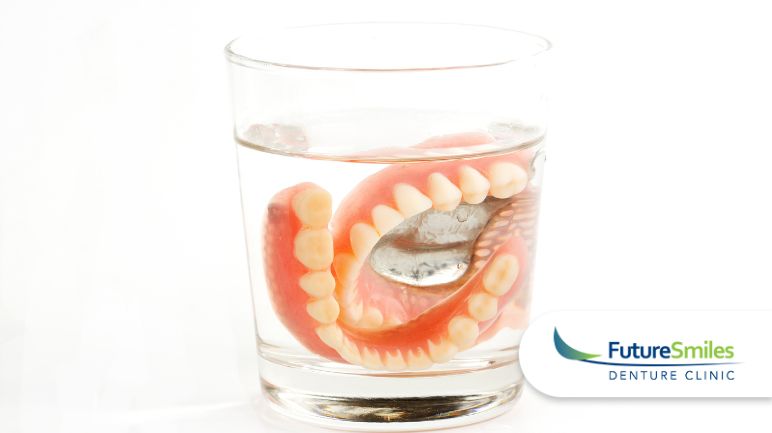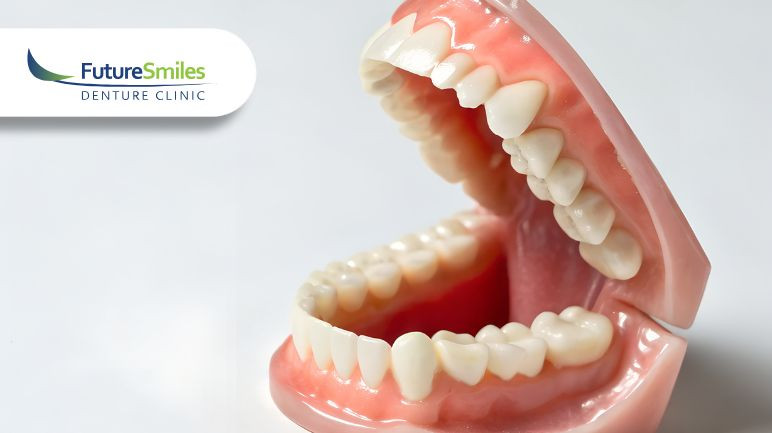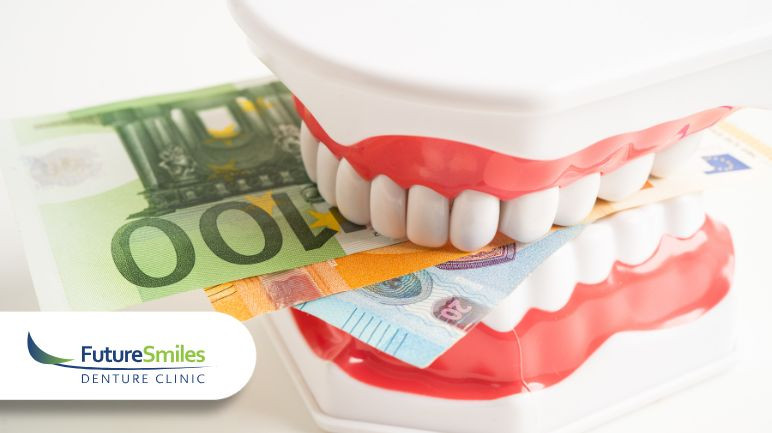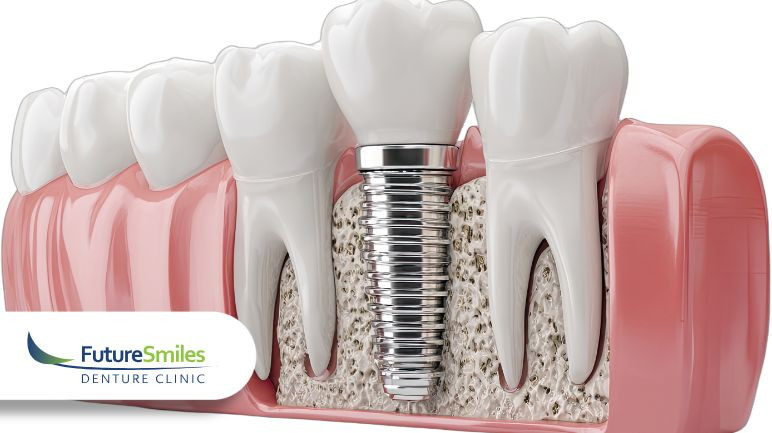As we journey through 2024, the care and maintenance of dentures remain a pivotal aspect of oral health. At Future Smiles Denture Clinic, we believe in empowering our clients with the knowledge and practices necessary to ensure their dentures last longer and perform better. Proper denture care is not just about cleaning; it's about preserving your smile and comfort.
In the ever-evolving world of dental care, understanding the nuances of denture maintenance is key. This guide aims to provide essential tips on soaking dentures, the importance of keeping them moist, and the benefits of removing them at night, all crucial for prolonging the life of dentures and maintaining oral hygiene.
The Art of Soaking Dentures
Soaking dentures is a fundamental aspect of their care. Why? Dentures are designed to mimic natural oral conditions, which include moisture. When not in use, especially overnight, soaking them in a special denture-cleaning solution or plain water helps maintain their shape, integrity, and hygiene. This practice also helps to remove food particles and bacteria, preventing plaque buildup and odours. It’s important to avoid hot or boiling water as it can warp the denture material. At Future Smiles Denture Clinic, we recommend specific solutions tailored to your type of denture, ensuring they get the care they deserve.
Keeping Dentures Moist
The reason behind keeping dentures moist goes beyond mere cleaning. Dentures that dry out can become brittle, leading to cracks and breakage. Moreover, dry dentures can lose their shape, compromising the fit. A poor fit not only causes discomfort but also can lead to gum sores and irritation. By keeping your dentures moist when not wearing them, you're essentially preserving their life and ensuring they remain as comfortable and effective as the day you got them.
Benefits of Removing Dentures at Night
Removing dentures at night is not just a recommended practice; it's a beneficial one. This nightly break gives your gums and mouth tissues time to recover from the pressure and friction of the dentures during the day. It reduces the risk of bacterial growth and infections, such as denture stomatitis. Additionally, it's an opportunity for deeper cleaning of both your dentures and your mouth, contributing to overall oral health. At Future Smiles Denture Clinic, we emphasize this routine as a key component in the long-term care of your dentures.
As we continue to navigate the nuances of dental care in 2024, it's clear that the proper maintenance of dentures plays a crucial role in overall oral health. By following these simple yet effective practices – soaking dentures, keeping them moist, and removing them at night – you not only extend the life of your dentures but also enhance your oral hygiene and comfort. Future Smiles Denture Clinic is committed to guiding you through every step of your denture care journey, ensuring that your smile remains as bright and healthy as ever. Remember, taking care of your dentures is as important as taking care of your natural teeth. Let us help you maintain that perfect smile!
Written on behalf of Future Smiles Denture Clinic.
FAQs
Q: Why is it important to soak dentures?
A: Soaking dentures is crucial as it helps maintain their shape and hygiene. When dentures are not in use, especially overnight, soaking them prevents them from drying out and becoming brittle, which can lead to shape distortion and breakage. Soaking also helps in removing food particles and bacteria, thus preventing plaque buildup and odours.
Q: What should I use to soak my dentures?
A: Dentures should be soaked in a special denture-cleaning solution or plain water. It's important to avoid hot or boiling water as this can warp the denture material. Future Smiles Denture Clinic recommends specific solutions tailored to your type of denture to ensure optimal care.
Q: Can drying out affect my dentures?
A: Yes, if dentures dry out, they can become brittle, leading to cracks and breakage. Dry dentures can also lose their shape, which affects the fit. A poor fit can cause discomfort and lead to gum sores and irritation.







